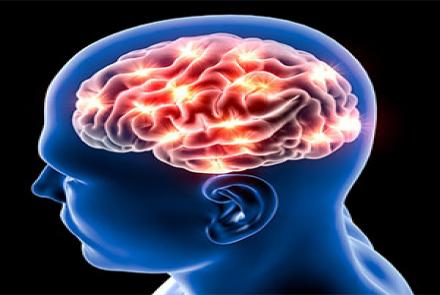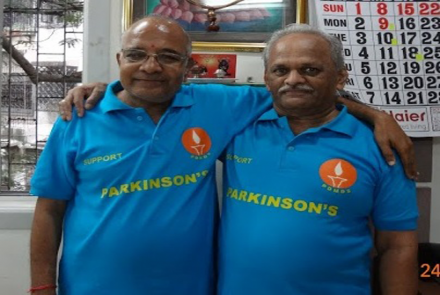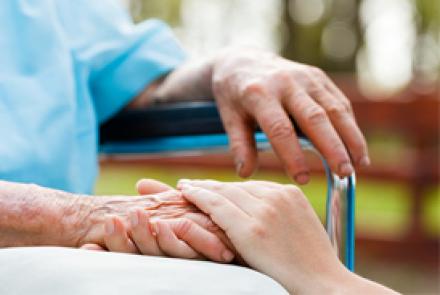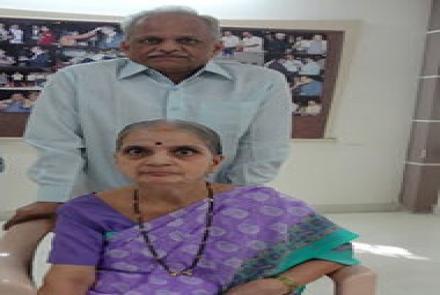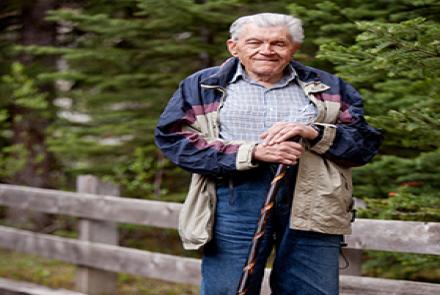
What is Young Onset Parkinson’s Disease
Although Parkinson’s is mainly a condition that affects the elderly, it is sometimes seen in people who are much younger as well. Young onset Parkinson’s is seen in people who are diagnosed with Parkinson’s before the age of 50 years.
Common Symptoms
Most of the symptoms for Parkinson’s are generally the same no matter at what age it is diagnosed and the rate of progression varies from individual to individual. However, young onset Parkinson’s tends to have the following symptoms
- Slower progression of Parkinson’s
- Increased rate of dystonia at onset of Parkinson’s and during treatment
- A lower rate of dementia
- An increased rate of dyskinesias in response to Levodopa
Dealing with Young Onset Parkinson’s
Dealing with Parkinson’s at any age is difficult; however, developing Parkinson’s at an early age can be especially challenging for the person with Parkinson’s and his/her family. This is probably because he/she has to deal with the condition from quite a young age and possibly for a longer duration of time. Some of the major problems that people with young onset Parkinson’s have are work, family and emotional difficulties. Whatever the problem may be, don’t give up! It is important to remember that you remain positive and optimistic, keep reinforce yourself with positively framed statements, and talk to your family and loved ones about your difficulties, fears and feelings.
Work : One concern that many people with Parkinson’s who are working have, is whether they need to stop working because of Parkinson’s. There are many people who are able to work for years after the diagnosis, but also many who are unable to work at all. Parkinson’s is a very individual condition and your ability to work would depend on your symptoms, the progression of your Parkinson’s as well as the stage of Parkinson’s you are at. Assess the kind of work that you have to do and keeping in mind the limitations that Parkinson’s has put on you, make a decision about whether you will be able to continue working or not.
Another concern that many people face at the work-place is the dilemma of whether they should inform their boss and co-workers about the Parkinson’s. The decision to inform people at your workplace should be yours and you should make a decision only after you have given this idea some thought. Only once you are comfortable with sharing this information with them should you take that step. Some organizations may be more supportive if they know about your condition. You can also take into consideration your relationship with your boss and co-workers before making the decision to tell them or not.
Family: There are times when people with early onset Parkinson’s are not married and might face difficulty with finding someone to marry because of their condition. Don’t be disappointed and certainly don’t give up! It is important to convey to people that Parkinson’s is not a contagious condition, that there is a very low possibility for Parkinson’s to be passed on through genes and you must also clear any other misconceptions (link to myths) that they might have about Parkinson’s. It is only if we spread awareness about Parkinson’s, will people know what it is and thus be more accepting and understanding of people with this condition.
Those who are already married and just starting their families and have young children are likely to face different kinds of problems. During these years, you might have expected to actively participate in work and family activities. Hence having to deal with diagnosis and symptoms of Parkinson’s at this stage could be stressful and frustrating and may cause many conflicts within the family. It is important that you talk to your family members about your feelings and difficulties. Together you all may be able to come up with better solutions for your problems.
Depression and Anxiety: Parkinson’s can also affect your mood causing conditions like depression and anxiety. Everyone feels sad at sometimes, however, depression is when the sadness is so severe that it takes over your entire life causing a loss of interest and pleasure in activities that were once enjoyable, feelings of hopelessness, worthlessness and guilt, disturbances in sleep and appetite etc. Similarly, anxiety is when the anxious feelings and worry occur for prolonged periods of time, even in the absence of a stressor and are sometimes accompanied by physiological symptoms like sweating, headaches, palpitations, feeling as though your heart is racing, grinding of the teeth etc. If you are experiencing any of these difficulties along with Parkinson’s, you can visit a Psychiatrist, a counselor or a psychologist.
Sexual Relationships: Parkinson’s may also affect your interest in sex which may cause difficulties in your relationship with your partner. PwPs, men as well as women tend to lose interest in any form of sexual activity after being diagnosed with Parkinson’s. This could be due to the depression and anxiety about which we mentioned earlier. Both these conditions make one lose interest in activities that were previously enjoyable.
In addition to this, the stress of living with Parkinson’s also begins to take a toll. Patients might feel they are no longer attractive or good looking and therefore view themselves negatively. They might find it difficult to talk about these issues with their partner.
On the other hand there are patients who might want to engage in sexual activity but are unable to do so because of the various motor symptoms of Parkinson’s such as slow movement, tremors, rigidity, dyskinesia, involuntary urination, excessive salivation and sweating. These complaints make intimate physical activity uncomfortable and painful.
Many patients are afraid to discuss their sexual problems with their physicians. They tend to accept them as inevitable accompaniments of their condition, or as a natural result of aging. It is recommended that both patients and their spouses should try and overcome their natural reticence, and freely discuss sexual dysfunctions with their doctors.
Tips for sexual problems
- Decreased sexual function does not mean decreased love for the partner,
- Understanding and patience are helpful.
- Changes in anti-Parkinson’s drugs therapy occasionally will improve sexual function.
- Other drugs for other problems (such as high blood pressure or anxiety) may contribute to sexual problems.
- An Aurologist or andrologist should be consulted.
- Treatment for depression may give benefit. The right drug must be selected, as some may worsen sexual function.
- Sexual activity should be regular. Inactivity reduces penile erectile function.
- Have an open discussion with your partner. Try to understand each other’s difficulties and needs and find ways to solve them.
- Chronic illness is tough on both of you. So relax, think positive, and enjoy and share each other's love in whatever ways you can.
- Support groups for young onset Parkinson’s (Hyperlink to Support Group for Young Onset Parkinson’s)




